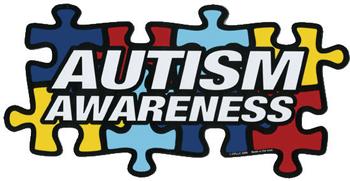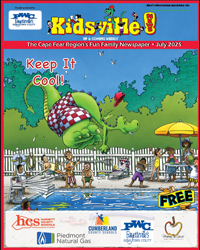Recently, I thought about what it might be like to trade places with my son for
a day. Austin is 16-years-old and has what is often referred to as High Functioning
Autism. This means that, while he still has autism, he is intelligent, can function in a
regular classroom (with some help), and can take care of himself for the most part. As
a parent, however, it doesn’t matter how high functioning your child with autism is —
there is still a great deal of heartache and concern involved. And the initial diagnosis is
still traumatic.

My first thought was that it would be a great learning experience to trade places with my son for a day. I would understand him better and see the world through his eyes. I would be able to see and feel what autism really is, thinking his thoughts and experiencing his feelings. Since I already have the insight of what it is like to not have autism, trading places with Austin would help me see what’s different.
From a purely mechanical standpoint, I thought it would be amazing to hold huge numbers of facts in my brain, something that is not normally my strength, and be able to regurgitate them whenever necessary. I might be able to remember and ponder the 435 animals that he has in his imaginary zoo. I would be able to remember what groceries I need, an impossible task for me without a list. Like Austin, I would be able to recall with relative ease things like all the court cases and amendments to the constitution or remember word-for-word summaries from the back of books.
Living with autism for a day might help me understand Austin’s thought process in social situations. Perhaps it would help me understand why Austin’s greetings to other people seem so timid and strained? I would be able to understand better what it’s like to be in a room full of people and not really be interested in what is going on around me. I thought that it would help me be a better mom and help me help others to see the great young man that I know and love.
Having autism myself might help me make environmental adjustments that would relieve the discomfort of noises that Austin perceives as loud enough to cover his ears. Maybe I could help decrease sibling rivalry if I could understand why he absolutely cannot ignore his younger sister’s taunts and joking. Even though I know that my son feels loved, experiencing autism might allow me to see more clearly the way in which Austin loves others and perceives other people’s expressions of love toward him.
But, after more consideration, thinking about trading places with my son for a day made me feel sad. I thought, what if I find out that the world is a very critical and chaotic place when you have autism? What if just a regular day is full of distracting and annoying noises that I couldn’t screen out? What if looking someone in the eyes and smiling at them became a diffi cult task? What if I found myself correcting people because their inaccuracies made me just plain crazy? What if I discovered that the only place that I felt safe and secure was being in my bedroom by myself?
What if I found out that I wouldn’t understand half of what people say since people rarely say what they mean and rarely mean what they say? What if I learned that solitary isolation was the consolation prize when communication with other people was too difficult and fraught with too many land mines? What if I found out that I was a square peg trying to fi t into a round hole, or that people were really not very compassionate?
Change is difficult for people with autism. Recently, I have been talking with Austin more about the future and how to make your way in the world. It made me sad to think that maybe my foray into these new topics caused him great angst. It is overwhelming for a normal teenager to think about leaving home or going to college. What would it be like to entertain these thoughts, knowing that the world does not accommodate me very well? It makes me sad to think that if I had autism the world would always be trying to turn my “squareness” into “roundness.” I would always be “wrong,” wouldn’t I? I would always be different, wouldn’t I?
I would not want to relive my own high school days, much less those of an autistic 16-year-old young man. Maybe trading places with my son would help; maybe it wouldn’t. Some people who have autism say that they like the way they are and wouldn’t want to be “normal.” Nevertheless, if it would be helpful, I would trade places with my son for a day in a heartbeat. In fact, like most parents, I would trade my life if I could.
For more information on autism, contact:The Autism Society of Cumberland
County at (910) 826-3004/3005, via email at autismcc@ccpfc.org or online at www.
autismcc.org.

 How to resolve AdBlock issue?
How to resolve AdBlock issue? 








